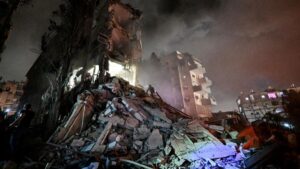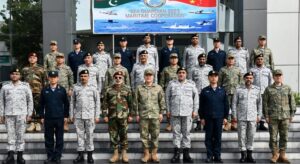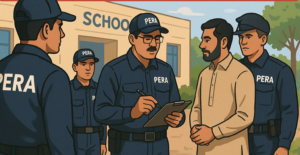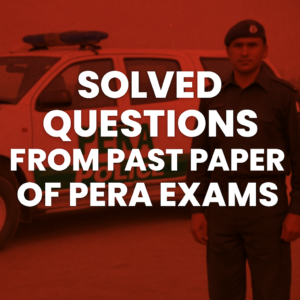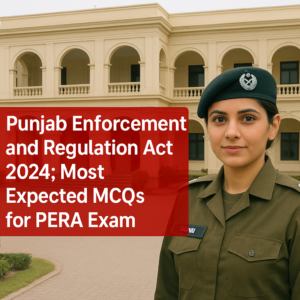The defeat in East Pakistan brought the Pakistani army back on its feet and Zulfiqar Ali Bhutto took full advantage of it.
As soon as Zulfiqar Ali Bhutto took over as President of Pakistan, he locked President Yahya Khan in his house and asked General Gul Hassan to lead the army. He then fired 44 senior officers from the Army, Navy, and Air Force, saying “they are fat and unfit for the job.”
The defeat in East Pakistan brought the Pakistani army back on its feet and Zulfiqar Ali Bhutto took full advantage of it.
A few days later, Bhutto also cornered General Gul Hassan. He needed a chief who would blindly obey his every command.
Owen Bennett Jones writes in his book, The Bhutto Dynasty Struggle for Power in Pakistan, that “Bhutto ordered Gul Hassan’s dismissal from a senior colleague instead of his stenographer.”
After the dismissal order of General Gul Hassan, he asked his trusted colleague Ghulam Mustafa Khar to go to Lahore with General Gul Hassan so that he would not have any contact with Gul Hassan until the order for the appointment of his successor was issued.
The officials who were suspected to oppose the decision were summoned for a mock meeting and kept there until Gul Hassan’s resignation was accepted.
Police were deployed on radio and TV stations and the PPP held a public meeting in Rawalpindi with the purpose of preventing President Bhutto from seeking public support.
After Gul Hassan, Bhutto appointed his trusted general Tika Khan as the head of the Pakistani army.
Beating of Jalaluddin Rahim
Within a few months, Bhutto’s arrogance increased so much that he even started insulting senior party members. In Bhutto’s biography, Zulfi Bhutto of Pakistan, Stanley Wolpert wrote: ‘On July 2, 1974, Bhutto invited Minister for Presidential Affairs Jalaluddin Abdul Rahim or J. Rahim and several senior colleagues to dinner. The dinner was at eight o’clock but the host himself did not arrive on time.
When it was twelve o’clock at night, Rahim placed his glass on the table and shouted, “All of you wait for the Maharaja of Larkana as long as you want. I am going home.”
When Bhutto arrived at the banquet, Hafeez Pirzada told him about Rahim’s treatment.
In the later hours of that night, the prime minister’s security chief went to Rahim’s house and beat him so badly that he fainted. When Rahim’s son Sikandar tried to intervene in the matter, he too was beaten.
Preferential treatment of General Zia
When Tikka Khan’s tenure ended, he sent Bhutto a list of seven possible successors. He deliberately did not name General Zia-ul-Haq because he was recently promoted to lieutenant general. But Bhutto stamped Zia’s name.
Perhaps the reason was that Zia had left no stone unturned in pleasing Mr.Bhutto.
Owen Bennett Jones writes: ‘Many times General Zia offered the sword to Bhutto in return for his services to his country and army. He once called Bhutto not only the unpaid chief commander of the Armored Corps but also sewed a special army uniform for him.
In Bhutto’s autobiography, Stanley Wolpert writes: “Zia never gave the impression that he could stage a military coup. Bhutto never took him seriously. He often made fun of Zia’s teeth.
“There was a famous story about him that once Zia was smoking a cigarette, at that moment Bhutto entered the room. Fearing that Bhutto would feel bad seeing him smoking, Zia immediately put the burning cigarette in his pocket.
After a while, the smell of burning clothes spread in the room. Zulfiqar Ali Bhutto wondered how anyone who was so afraid of him could revolt against him.
Meanwhile, protests against the Bhutto government began across the country. Despite Bhutto’s best efforts, law and order did not seem to be restored.
In Lahore, three brigadiers refused to open fire on people. At one point, the soldiers obeyed the order to shoot, but they opened fire just above the crowd.
Owen Bennett Jones writes: “Bhutto’s biggest mistake was to involve Army Corps commanders in negotiations with his opponents.”
He writes: ‘From Bhutto’s point of view, he was trying to accompany the army. But military officers looked at them differently. In his view, Bhutto’s move showed that he was weak and not in a position to run the government.
‘Mess’ in elections
Despite all the opposition, Bhutto called a general election on March 7, 1977. Ordinary Pakistanis did not believe in the forthcoming election results.
Bhutto’s PPP won 155 of the 200 seats in the National Assembly, while the opposition People’s National Alliance won only 36 seats despite widespread publicity.
In the 1970 elections, when the PPP was at its peak of popularity, it received only 39 percent of the vote, compared to 55 percent in the previous election. Despite a major opposition campaign against Bhutto, he received only 39 percent of the vote.
Referring to the post-election atmosphere, Kausar Niazi writes in his book ‘Last Days of Premier Bhutto’: ‘Bhutto was sitting at the PM’s residence with Hafeez Pirzada, Rafi Raza and two of his friends.
Looking at Pirzada, Bhutto asked: “How many seats will Hafeez be rigged in?” His answer was ‘head 30 or 40’. “Can’t we ask the opposition to run for re-election in these seats?” Bhutto said. We will not field a candidate against them in these seats.
Bhutto wanted himself to be elected unopposed from Larkana, while his adviser Rafi Raza strongly opposed that decision.
The PNA candidate contesting against Bhutto was offered another seat and was told that he would win unopposed. He did not accept the offer. As a result, the PNA candidate was abducted so that they could not file their nomination papers.
Owen Bennett Jones writes that Hafeez Pirzada had told him that the election mess had started with this incident. Seeing Bhutto, 18 PPP candidates also wanted assurance that no candidate would stand against them.
Bhutto could not smell a foul till the end
Leading Pakistani journalist Khalid Hassan wrote in his book ‘Rear View Mirror: Four Memoirs’:’ Niraja Anwar, an adviser to Bhutto, saw a meeting between Bhutto and General Tikka Khan shortly before the military coup.
Bhutto said to Tika Khan: ‘General, you remember that you opposed making Zia the army chief, now you have to admit that I made the right decision. If there was another army chief, he would have taken over this power by making an excuse of law and order. Seven hours later, Zia did the same.
The judge apparently took revenge from Bhutto for the personal enmity
After his arrest, Bhutto was accused of killing his political rival Muhammad Ahmad Khan Kasuri.
Official witness Mahmood Masood testified that Zulfiqar Ali Bhutto had ordered him to kill Kasuri.
Victoria Schofield writes in her book Bhutto: Trials and Executions: ‘Maulvi Mushtaq Hussain was the head of a five-judge bench. There was an old enmity with Bhutto. When Bhutto was in power, he twice promoted junior judges before him.
Note: This is the Rehan Fazal story about the 1977 military coup in Pakistan. The story was first published on BBC Urdu.
You can also read: Let Us Change Ourselves Before We Change The System
📍 English Language Educator | Blogger & Content Strategist | 7+ Years in Educational Blogging
Nosheen Bashir is a dedicated English teacher and experienced blogger with over seven years of expertise in content creation and educational writing. Passionate about language, literature, and effective communication, she combines her teaching experience with blogging skills to create insightful, research-backed content that helps learners and educators alike.
🔹 Expertise & Achievements:
✔ English Language Education: A skilled educator with years of experience in teaching English grammar, literature, and communication skills to students of varying levels.
✔ Educational Blogging: Running a successful blog for 7+ years, delivering well-structured, engaging content on language learning, writing techniques, and academic success.
✔ SEO & Content Strategy: Specializes in creating high-ranking, authoritative articles that follow Google’s EEAT principles, ensuring content that is both informative and search-friendly.
✔ Student-Centric Approach: Committed to making English easier, engaging, and accessible, helping readers and students improve their language proficiency.
🚀 With a passion for teaching and writing, Nosheen Bashir is dedicated to crafting educational content that empowers students, teachers, and language enthusiasts worldwide.



